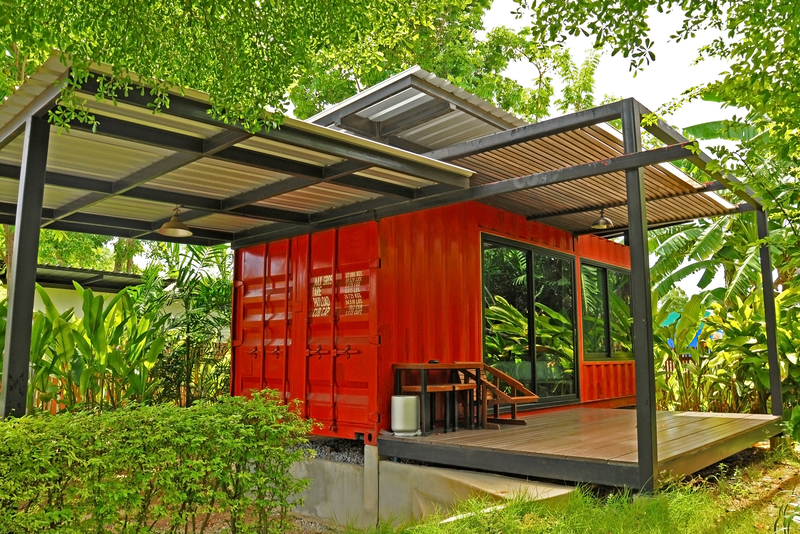Involving Kids in Composting
Composting is an essential practice for a healthier planet--transforming organic waste into nutrient-rich soil helps reduce landfill waste and enhances garden productivity. Involving kids in composting not only contributes to environmental sustainability, but it also imparts essential life skills and environmental stewardship to the younger generation. Here's how you can make composting an engaging and educational activity for kids.
Why Involve Kids in Composting?
Kids are naturally curious and love hands-on activities, making composting an ideal way to teach them about biology, chemistry, and environmental science. Here are some reasons to involve kids in composting:
- Educational Value: Kids learn about ecosystems, decomposition, and the nutrient cycle.
- Responsibility: Composting teaches responsibility and the rewards of nurtured tasks.
- Environmental Awareness: Children gain a better understanding of waste reduction and sustainability.
- Family Bonding: Composting can become a fun family activity that everyone looks forward to.

Steps to Start Composting with Kids
Getting started with composting is simple. Here's a step-by-step guide to initiate the process with your children:
1. Choose a Composting Method: Decide whether you want to use a compost bin, pile, or vermiculture (worm composting). A small indoor bin might be ideal for beginners.
2. Educate: Before you start, educate your children about composting. Explain the basics--what can be composted (fruits, vegetables, coffee grounds) and what cannot (meat, dairy).
3. Set Up the Compost Bin: Involve the kids in setting up the compost bin. Let them add initial layers of green (e.g., vegetable scraps) and brown materials (e.g., leaves and paper).
4. Daily Contributions: Encourage your children to contribute daily kitchen scraps. Allow them to inspect and turn the compost to observe the decomposition process.
5. Monitor the Compost: Regularly check the moisture and turn the compost. Teach kids to understand the balance between green and brown materials to ensure proper decomposition.
6. Harvest and Use: When the compost is ready, let kids help with harvesting and using it in the garden. Show them how the compost enriches the soil and promotes plant growth.
Fun Composting Activities for Kids
Making composting fun ensures that kids remain interested. Here are some engaging activities:
- Compost Creatures Scavenger Hunt: Have kids hunt for worms, beetles, and other compost critters, teaching them about the role of these creatures in breaking down organic matter.
- Compost Diary: Encourage kids to keep a compost diary where they note down the items they compost and observe changes over time.
- Crafting with Compost: Use finished compost for planting seeds in decorated pots or creating compost sculptures.
Tips for Success
Here are some expert tips to make the composting process smoother:
- Start Small: Begin with a small bin before moving to larger systems.
- Balance: Ensure a proper green to brown material ratio to avoid odor and pests.
- Routine: Make composting a part of daily chores to develop a routine.
- Educate Continuously: Keep educating kids about different aspects of composting and waste reduction.
Pros and Cons of Composting with Kids
Pros:
- Educational Growth: Teaches science, sustainability, and responsibility.
- Family Bonding: Encourages shared outdoor activities.
- Reduced Waste: Reduces household kitchen waste.
- Garden Benefits: Produces rich fertilizer for gardening.
Cons:
- Initial Effort: Requires initial setup and ongoing effort.
- Potential Mess: Can be messy, especially with younger kids.
- Patience Required: Composting is a slow process; might test kids' patience.

Key Takeaways
- Involving kids in composting is a fantastic way to teach them about environmental stewardship.
- The process requires some initial setup but can yield significant educational and environmental benefits.
- Making composting fun and engaging is essential for maintaining children's interest.
- Educate kids continuously and integrate composting into daily routines for best results.
Conclusion
Involving kids in composting is beneficial for both the environment and the children's development. It imparts valuable knowledge about ecosystems, responsibility, and sustainability while creating opportunities for family bonding. Although it requires some effort, the long-term benefits--ranging from reduced household waste to rich garden soil--certainly outweigh the challenges. By making composting a fun and educational activity, you can inspire the next generation to value and protect our precious planet.
